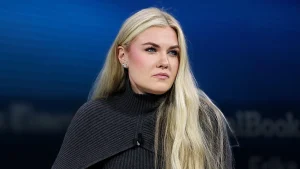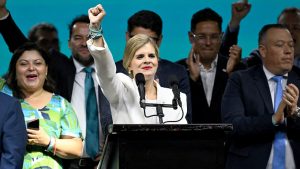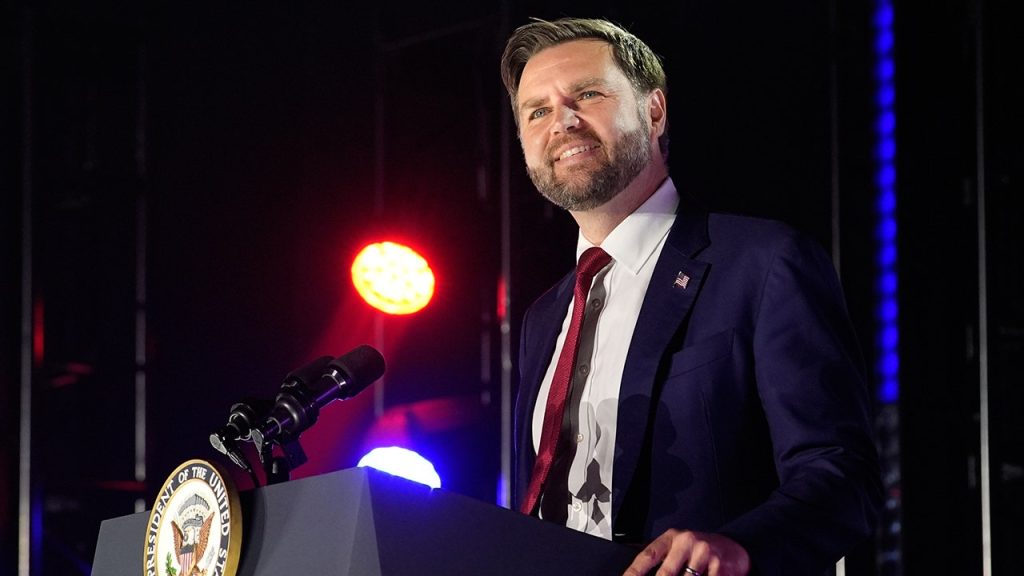JD Vance Speaks on Faith, Governance, and Charlie Kirk’s Legacy at Ole Miss
In a heartfelt address to thousands of students at the University of Mississippi, Vice President JD Vance shared profound insights on faith, governance, and the enduring impact of slain conservative activist Charlie Kirk. Speaking at a Turning Point USA gathering following remarks from Kirk’s widow Erika, Vance engaged with the audience on topics ranging from immigration to religious liberty, revealing how his Christian faith shapes his approach to leadership. “I make no apologies for thinking that Christian values are an important foundation of this country,” Vance declared, challenging the notion of neutrality in governance and emphasizing the historical role of Christian principles in American society. His candid reflections offered a window into how personal faith influences his public service and perspective on America’s cultural foundations.
During the question-and-answer session, Vance articulated his views on the relationship between religion and government, critiquing what he called contemporary liberalism’s “perverted version of Christianity.” He argued that compassion detached from religious duty or civic virtue can lead to societal problems, stating that “a properly rooted Christian moral order is such an important part of the future of our country.” Vance contested the prevailing interpretation of church-state separation, asserting that the constitutional prohibition against establishing religion has been misconstrued to exclude religious expression from public spaces entirely. “Anybody who tells you it’s required by the Constitution is lying to you,” he stated, suggesting that the Supreme Court’s interpretation has had lasting negative consequences by effectively removing religious influence from federal, state, and local levels of public life.
The Vice President’s remarks took a personal turn when asked about navigating life in an interfaith household. Vance, whose wife Usha practices Hinduism, explained that he wasn’t a Christian when they first met but that they ultimately decided together to raise their children in the Christian faith. He described how open communication and mutual respect form the foundation of their approach to religious differences, sharing that his wife often accompanies him to church. With disarming honesty, Vance admitted, “Do I hope eventually that she is somehow moved by the same thing that I was moved by in church? Yeah, honestly, I do wish that,” while acknowledging his respect for her free will and personal religious journey regardless of the outcome.
Reflecting on Charlie Kirk’s influence on his spiritual development, Vance credited the late activist with encouraging him to be more vocal about his faith. Growing up in a generation where people often kept their religious beliefs private, Vance explained how Kirk helped inspire him to speak more openly about his Christian convictions. “The reason why I try to be the best husband I can be, the best father I can be, the reason why I care so much about all the issues that we’re going to talk about, is because I believe I’ve been placed in this position for a brief period of time to do the most amount of good for God and for the country that I love so much,” Vance told the audience, underscoring how faith motivates his approach to both personal relationships and public service.
Throughout the event, Vance consistently challenged what he perceives as efforts to marginalize religious expression in American life. His comments represented a broader conservative perspective that religious values, particularly Christian ones, should not be excluded from public discourse but rather embraced as a foundational element of American society and governance. This position stands in contrast to more progressive viewpoints that advocate for stricter separation of religious influence from government affairs. Vance’s willingness to speak candidly about such matters highlighted the ongoing national debate about the proper relationship between faith and politics in contemporary America.
The Ole Miss event ultimately served as both a memorial to Charlie Kirk’s legacy and a platform for Vance to articulate how personal faith intersects with political leadership in his worldview. By sharing intimate details about his religious journey alongside his policy positions, the Vice President presented himself as someone guided by Christian principles while governing in a pluralistic society. His remarks reflected a commitment to bringing religious values into the public square while acknowledging the diverse religious landscape of modern America, including within his own family. The thousands of students in attendance witnessed not just a political figure addressing policy matters, but a leader grappling with the complex interplay between personal conviction and public responsibility in an increasingly divided nation.















